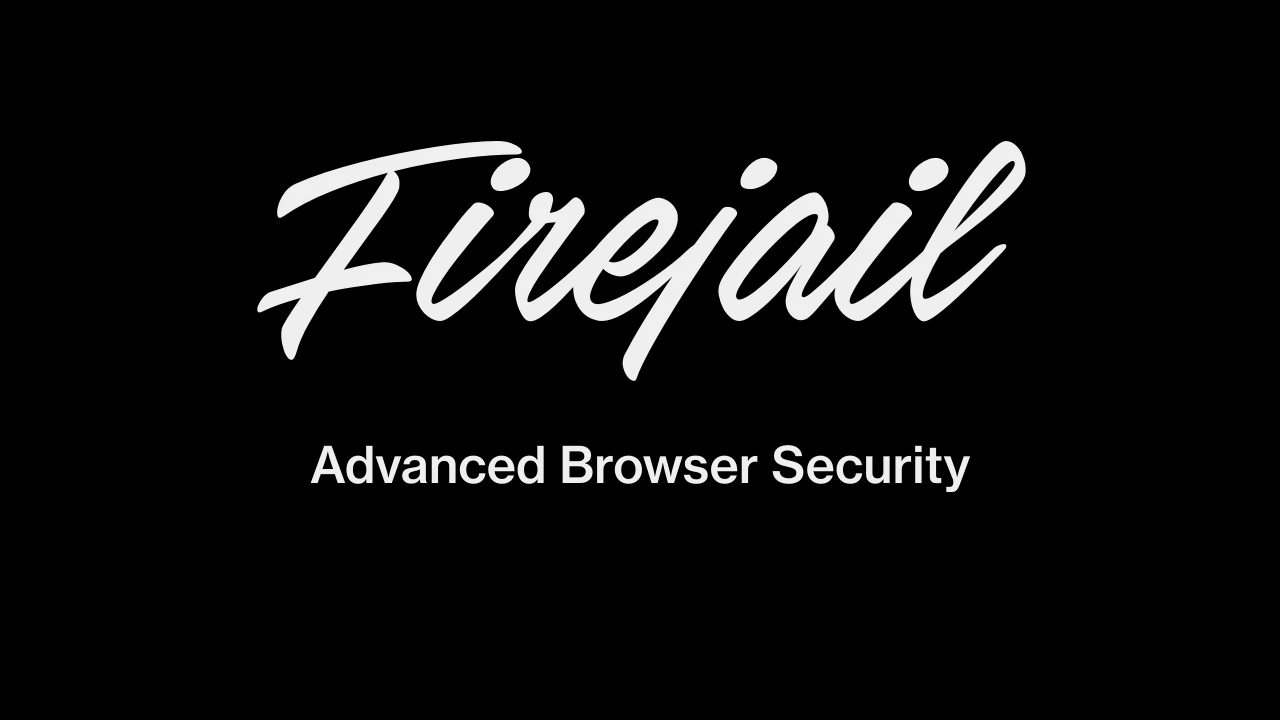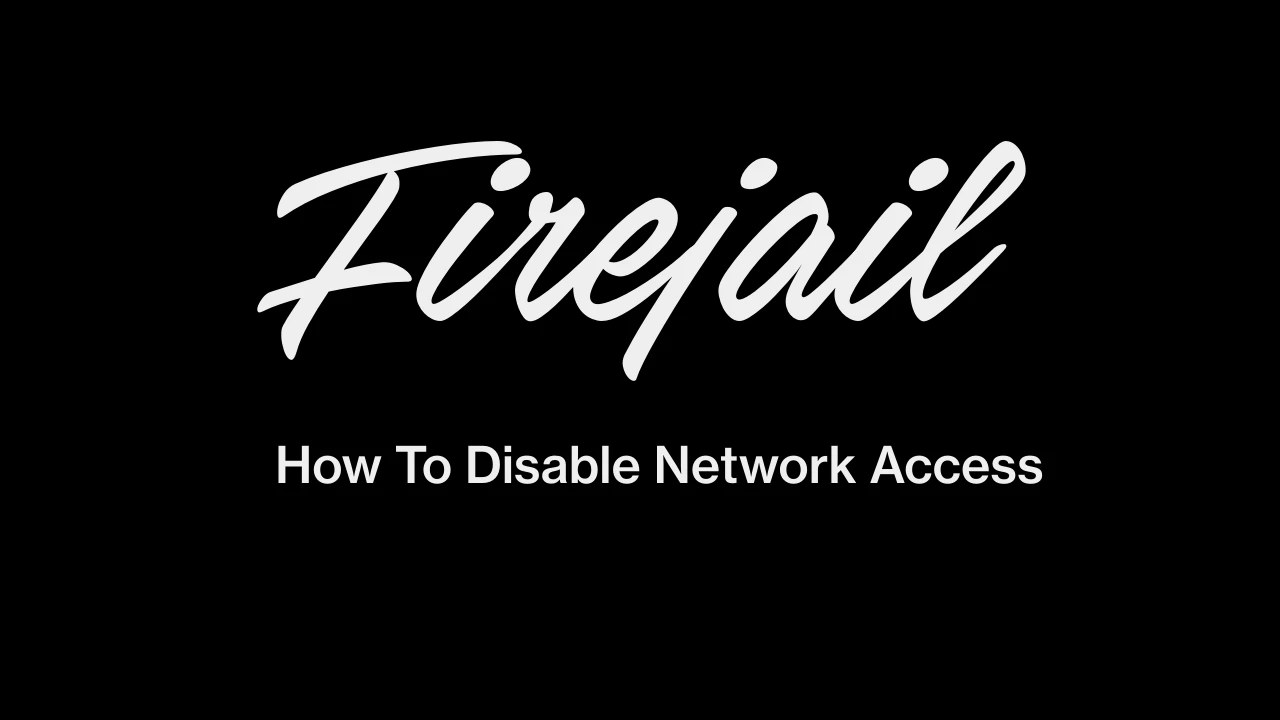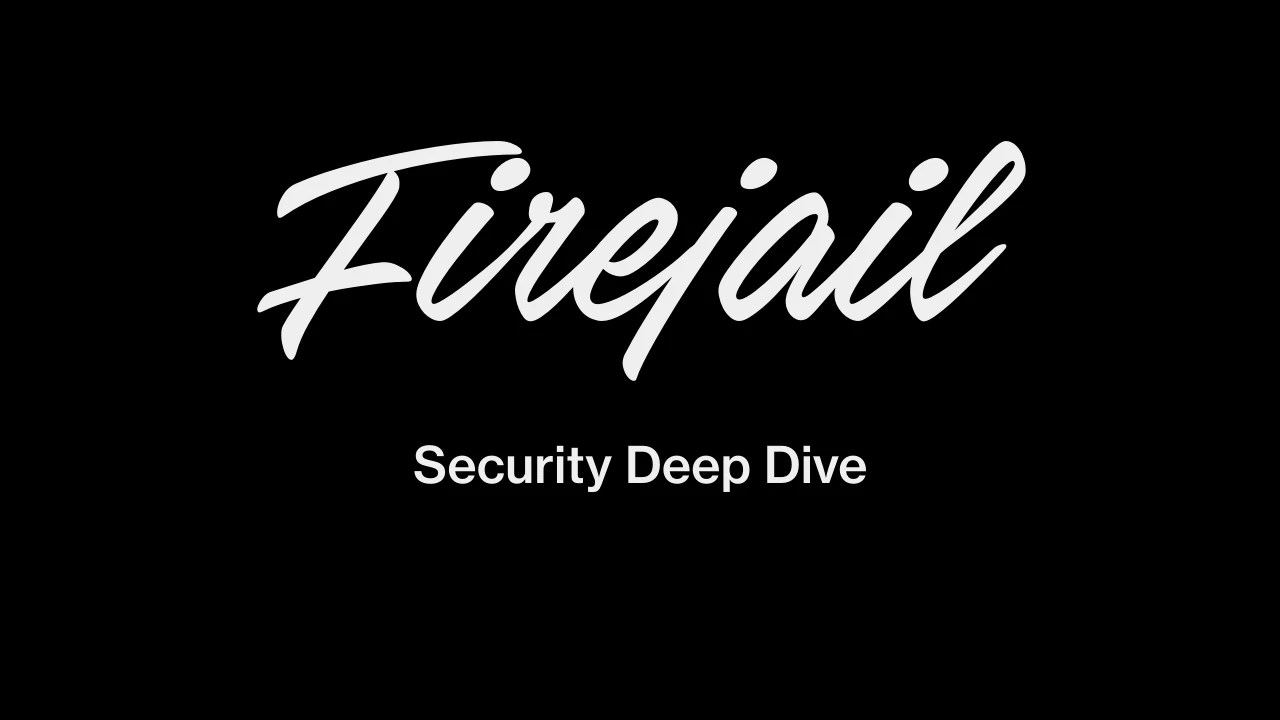Firejail is a SUID sandbox program that reduces the risk of security breaches by restricting the running environment of untrusted applications using Linux namespaces, seccomp-bpf and Linux capabilities. It allows a process and all its descendants to have their own private view of the globally shared kernel resources, such as the network stack, process table, mount table. Firejail can work in a SELinux or AppArmor environment, and it is integrated with Linux Control Groups.
Written in C with virtually no dependencies, the software runs on any Linux computer with a 3.x kernel version or newer. It can sandbox any type of processes: servers, graphical applications, and even user login sessions. The software includes sandbox profiles for a number of more common Linux programs, such as Mozilla Firefox, Chromium, VLC, Transmission etc.
The sandbox is lightweight, the overhead is low. There are no complicated configuration files to edit, no socket connections open, no daemons running in the background. All security features are implemented directly in Linux kernel and available on any Linux computer.

Advanced Browser Security |

How To Disable Network Access |

Deep Dive |
- Project webpage: https://firejail.wordpress.com/
- IRC: https://web.libera.chat/#firejail
- Download and Installation: https://firejail.wordpress.com/download-2/
- Features: https://firejail.wordpress.com/features-3/
- Documentation: https://firejail.wordpress.com/documentation-2/
- FAQ: https://github.com/netblue30/firejail/wiki/Frequently-Asked-Questions
- Wiki: https://github.com/netblue30/firejail/wiki
- GitHub Actions: https://github.com/netblue30/firejail/actions
- GitLab CI: https://gitlab.com/Firejail/firejail_ci/pipelines
- Video Channel: https://odysee.com/@netblue30:9?order=new
- Backup Video Channel: https://www.bitchute.com/profile/JSBsA1aoQVfW/
See SECURITY.md.
Debian stable (bullseye): We recommend to use the backports package.
For Ubuntu 18.04+ and derivatives (such as Linux Mint), users are strongly advised to use the PPA.
How to add and install from the PPA:
sudo add-apt-repository ppa:deki/firejail
sudo apt-get update
sudo apt-get install firejail firejail-profilesReason: The firejail package for Ubuntu 20.04 has been left vulnerable to CVE-2021-26910 for months after a patch for it was posted on Launchpad:
See also https://wiki.ubuntu.com/SecurityTeam/FAQ:
What software is supported by the Ubuntu Security team?
Ubuntu is currently divided into four components: main, restricted, universe and multiverse. All binary packages in main and restricted are supported by the Ubuntu Security team for the life of an Ubuntu release, while binary packages in universe and multiverse are supported by the Ubuntu community.
Additionally, the PPA version is likely to be more recent and to contain more profile fixes.
See the following discussions for details:
- Should I keep using the version of firejail available in my distro repos?
- How to install the latest version on Ubuntu and derivatives
Firejail is available in multiple Linux distributions:
Other than the aforementioned exceptions, as long as your distribution provides a supported version of firejail, it's generally a good idea to install it from the distribution.
The version can be checked with firejail --version after installing.
You can also install one of the released packages.
Or clone the source code from our git repository and build manually:
git clone https://github.com/netblue30/firejail.git
cd firejail
./configure && make && sudo make install-stripOn Debian/Ubuntu you will need to install git and gcc. AppArmor development
libraries and pkg-config are required when using the --enable-apparmor
./configure option:
sudo apt-get install git build-essential libapparmor-dev pkg-config gawkFor --selinux option, add libselinux1-dev (libselinux-devel for Fedora).
Detailed information on using firejail from git is available on the wiki.
To start the sandbox, prefix your command with firejail:
firejail firefox # starting Mozilla Firefox
firejail transmission-gtk # starting Transmission BitTorrent
firejail vlc # starting VideoLAN Client
sudo firejail /etc/init.d/nginx startRun firejail --list in a terminal to list all active sandboxes. Example:
$ firejail --list
1617:netblue:/usr/bin/firejail /usr/bin/firefox-esr
7719:netblue:/usr/bin/firejail /usr/bin/transmission-qt
7779:netblue:/usr/bin/firejail /usr/bin/galculator
7874:netblue:/usr/bin/firejail /usr/bin/vlc --started-from-file file:///home/netblue/firejail-whitelist.mp4
7916:netblue:firejail --listIntegrate your sandbox into your desktop by running the following two commands:
firecfg --fix-sound
sudo firecfgThe first command solves some shared memory/PID namespace bugs in PulseAudio software prior to version 9. The second command integrates Firejail into your desktop. You would need to logout and login back to apply PulseAudio changes.
Start your programs the way you are used to: desktop manager menus, file manager, desktop launchers.
The integration applies to any program supported by default by Firejail. There are over 900 default applications in the current Firejail version, and the number goes up with every new release.
We keep the application list in src/firecfg/firecfg.config (/etc/firejail/firecfg.config when installed).
Most Firejail command line options can be passed to the sandbox using profile files.
You can find the profiles for all supported applications in etc/ (/etc/firejail/ when installed).
We also keep a list of profile fixes for previous released versions in etc-fixes/.
If you keep additional Firejail security profiles in a public repository, please give us a link:
Use this issue to request new profiles:
You can also use this tool to get a list of syscalls needed by a program:
firecfg creates symlinks in /usr/local/bin, so to fully remove firejail, run the following before uninstalling:
sudo firecfg --cleanSee man firecfg for details.
Note: Broken symlinks are ignored when searching for an executable in $PATH,
so uninstalling without doing the above should not cause issues.
--keep-shell-rc
By default, when using a private home directory, firejail copies
files from the system's user home template (/etc/skel) into it,
which overrides attempts to whitelist the original files (such
as ~/.bashrc and ~/.zshrc). This option disables this feature,
and enables the user to whitelist the original files.
--private-etc, --private-etc=file,directory,@group
The files installed by --private-etc are copies of the original
system files from /etc directory. By default, the command
brings in a skeleton of files and directories used by most
console tools:
$ firejail --private-etc dig debian.org
For X11/GTK/QT/Gnome/KDE programs add @x11 group as a
parameter. Example:
$ firejail --private-etc=@x11,gcrypt,python* gimp
gcrypt and /etc/python* directories are not part of the generic
@x11 group. File globbing is supported.
For games, add @games group:
$ firejail --private-etc=@games,@x11 warzone2100
Sound and networking files are included automatically, unless
--nosound or --net=none are specified. Files for encrypted
TLS/SSL protocol are in @tls-ca group.
$ firejail --private-etc=@tls-ca,wgetrc wget https://debian.org
Note: The easiest way to extract the list of /etc files accessed
by your program is using strace utility:
$ strace /usr/bin/transmission-qt 2>&1 | grep open | grep etc
We keep the list of groups in src/include/etc_groups.h.
Discussion:
A small tool to print profile statistics. Compile and install as usual. The tool is installed in the /usr/lib/firejail directory.
Run it over the profiles in /etc/profiles:
$ /usr/lib/firejail/profstats /etc/firejail/*.profile
No include .local found in /etc/firejail/noprofile.profile
Warning: multiple caps in /etc/firejail/transmission-daemon.profile
Stats:
profiles 1209
include local profile 1208 (include profile-name.local)
include globals 1181 (include globals.local)
blacklist ~/.ssh 1079 (include disable-common.inc)
seccomp 1096
capabilities 1202
noexec 1087 (include disable-exec.inc)
noroot 1003
memory-deny-write-execute 272
restrict-namespaces 958
apparmor 753
private-bin 704
private-dev 1058
private-etc 550
private-lib 71
private-tmp 932
whitelist home directory 585
whitelist var 870 (include whitelist-var-common.inc)
whitelist run/user 1176 (include whitelist-runuser-common.inc
or blacklist ${RUNUSER})
whitelist usr/share 640 (include whitelist-usr-share-common.inc
net none 410
dbus-user none 679
dbus-user filter 141
dbus-system none 851
dbus-system filter 12